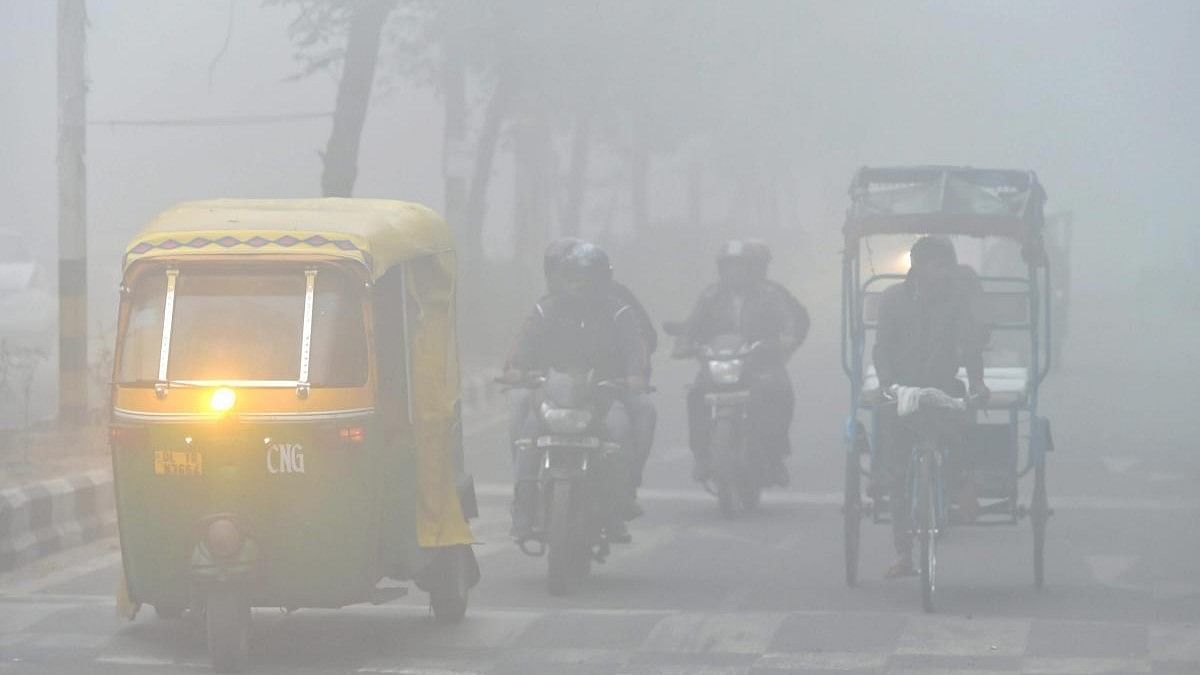
Representative image of air pollution
PTI File Photo
Mysuru: The city of Mysuru is described in many positive ways. People visiting the city still praise its climate and atmosphere. However, Greenpeace India has warned about the deteriorating air quality in Mysuru, following a recent study.
The study ‘Spare the Air-2’, done in 10 major cities of South India from January 1, 2023 to December 31, 2023, has flagged serious health concerns, as the average PM2.5 and PM10 levels have soared significantly, exceeding the air quality guidelines set by the World Health Organisation (WHO).
Bengaluru and Mangaluru also sees declining air quality
Besides Mysuru, Greenpeace India, a non-profit, environmental campaign organisation dedicated to promoting climate change mitigation, adaptation, and just transition, has warned of declining air quality in Bengaluru and Mangaluru of Karnataka, as air pollution is on a rise.
The report has analysed the air quality standards of Hyderabad, Chennai, Visakhapatnam, Kochi, Mangaluru, Amravati, Vijayawada, Visakhapatnam, Bengaluru, Mysuru and Puducherry.
It found that in Visakhapatnam, PM2.5 is 10 times and PM10 is 9 times higher than WHO guidelines, and significantly surpasses National Ambient Air Quality Standards (NAAQS) limits. When compared with WHO guidelines, the annual average PM2.5 levels are found to be 6 to 7 times higher in Hyderabad, Vijayawada, Kochi, Mangaluru, Amaravati, and Chennai.
Crucial to also address currently compliant cities
Additionally, comparing PM10 levels with WHO guidelines reveals that Bengaluru, Puducherry, and Mysuru have annual averages that exceed these guidelines by 4 to 5 times.
Lead researcher Akanksha Singh said, "This report reveals that particulate matter levels in all cities have surpassed the revised WHO guidelines. While the current efforts focus on cities not meeting the NAAQS, it is crucial to also address those cities that are currently in compliance. Proactively managing air quality in these areas can help prevent them from falling into non-attainment."
NAAQS revision required
Selomi Garnaik, Greenpeace India’s campaigner, adds, "We urge the Central Pollution Control Board (CPCB) to adopt a health-based approach, in revising the NAAQS, striving to meet WHO’s latest scientific guidelines. Given the distinct pollution profiles and climatic conditions of southern cities, region-specific air quality standards should be established, aligned with local airshed management. This tailored approach will ensure more effective measures, for managing air pollution and safeguarding public health in these regions."
The report recommends increased investment towards developing a 'hybrid' air quality monitoring network, facilitating real-time public access to air quality information.
It suggests that local governments should promote renewable energy solutions, while mapping the sectoral hotspot zones to develop targeted action points for effective pollution control as well as to create awareness programmes, to encourage people to adopt sustainable practices such as public transport, electric vehicles and solar energy to reduce fossil fuel dependency.
Myth of 'cleaner air' in South India
Avinash Chanchal, Greenpeace India’s campaign manager, said, "The report's findings debunk the myth of cleaner air in the southern states. Alarmingly, not a single major city in these states meet the WHO's standards for safe and healthy air. This report should serve as a wake-up call for the governments of southern cities. Major contributors such as emission from vehicles, power plants, industry, waste, construction and other sectors should be addressed."